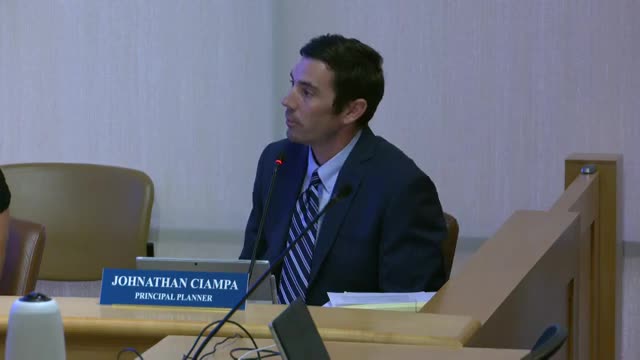Measure T Sparks Uncertainty Over Short Term Rentals
August 26, 2024 | Dana Point, Orange County, California
This article was created by AI summarizing key points discussed. AI makes mistakes, so for full details and context, please refer to the video of the full meeting. Please report any errors so we can fix them. Report an error »

In a recent government meeting, officials discussed the implications of Measure T on the city’s short-term rental (STR) program and the issuance of Coastal Development Permits (CDPs). The conversation highlighted significant uncertainties surrounding the potential effects of the measure, particularly regarding existing CDPs that prohibit STRs.
City officials noted that the Coastal Commission had previously approved the city’s STR program, asserting that it did not negatively impact public access to the coast. However, the passage of Measure T could complicate this approval, as it remains unclear how the Coastal Commission would interpret the measure in relation to the existing STR framework. This uncertainty raises concerns about future CDPs for homeowners associations (HOAs) that wish to ban STRs, as well as the validity of previously issued permits.
The discussion also touched on the annual review process for STR permits under Measure T, which would require applicants to reapply each year. This could potentially disrupt the established order, especially for HOAs with older covenants that outlaw STRs. Officials expressed skepticism about whether Measure T could override these covenants, suggesting that litigation might arise from the ambiguity.
Despite the uncertainties, some commissioners voiced support for the current STR program, citing its effectiveness and the lack of reported issues in their neighborhoods. They emphasized the importance of allowing communities to decide on STRs while acknowledging the need for clarity moving forward.
The meeting concluded without public comments, and the commissioners prepared to deliberate on the matter further, indicating a potential approval of the current STR program amidst the ongoing uncertainties surrounding Measure T.
City officials noted that the Coastal Commission had previously approved the city’s STR program, asserting that it did not negatively impact public access to the coast. However, the passage of Measure T could complicate this approval, as it remains unclear how the Coastal Commission would interpret the measure in relation to the existing STR framework. This uncertainty raises concerns about future CDPs for homeowners associations (HOAs) that wish to ban STRs, as well as the validity of previously issued permits.
The discussion also touched on the annual review process for STR permits under Measure T, which would require applicants to reapply each year. This could potentially disrupt the established order, especially for HOAs with older covenants that outlaw STRs. Officials expressed skepticism about whether Measure T could override these covenants, suggesting that litigation might arise from the ambiguity.
Despite the uncertainties, some commissioners voiced support for the current STR program, citing its effectiveness and the lack of reported issues in their neighborhoods. They emphasized the importance of allowing communities to decide on STRs while acknowledging the need for clarity moving forward.
The meeting concluded without public comments, and the commissioners prepared to deliberate on the matter further, indicating a potential approval of the current STR program amidst the ongoing uncertainties surrounding Measure T.
View the Full Meeting & All Its Details
This article offers just a summary. Unlock complete video, transcripts, and insights as a Founder Member.
✓
Watch full, unedited meeting videos
✓
Search every word spoken in unlimited transcripts
✓
AI summaries & real-time alerts (all government levels)
✓
Permanent access to expanding government content
30-day money-back guarantee

